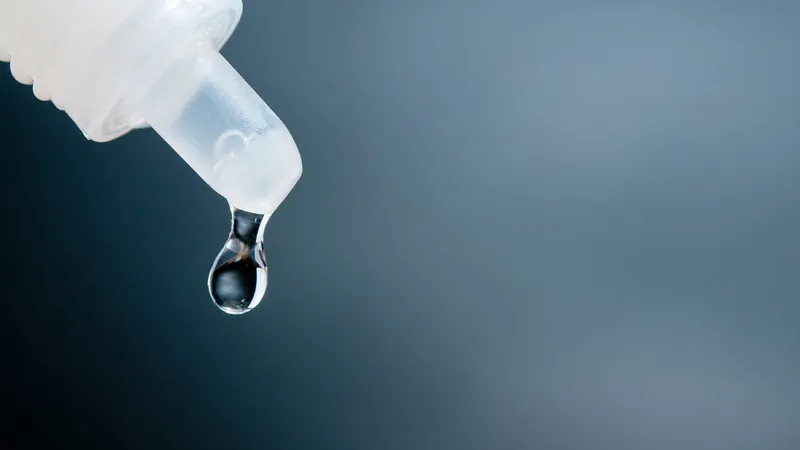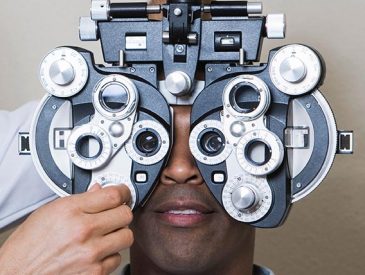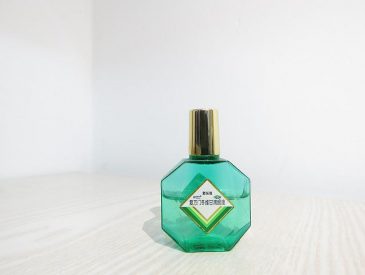Yes, eye drops have an expiration date and should not be used past that time. Otherwise, they might be bad for the health of your eyes.
Why, then, are outdated eye drops unsafe? We will discuss the shelf life of eye drops, the significance of their expiration dates, and the consequences of using expired eye drops (which, once again, you should not do!).
Table of Contents
Is It Safe to Use Expired Eye Drops?
If you’re lucky, using expired eye drops won’t have any negative effects. To risk using any medication after its expiration date is never a good idea.
Once the preservatives start to degrade, eye drops run the risk of becoming contaminated with bacteria. Consider that you then apply the eye drops. If so, you might be putting those germs right in your eye, which could result in issues like serious infections.
Despite these issues, the manufacturer of the eye drops cannot guarantee that they will remain effective after their expiration date. With an expired product, there is therefore not only a higher risk of infection but also a chance that the original problem won’t be resolved.
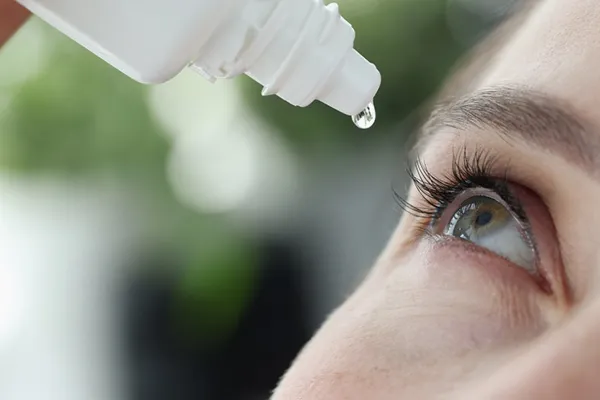
What Causes Eye Drops to Expire?
To keep eye drops safe and effective, they are preserved. These preservatives degrade over time, leaving the medication vulnerable to bacterial growth. Due to the fact that various drops occasionally contain different preservatives with varying shelf lives, there is no set time period.
Preservatives may break down more quickly after the container is opened due to air exposure. Because of this, some producers include a second expiration date on their packaging after the drops are opened.
Direct contamination can also cause eye drops to be “expired” even if they haven’t reached the date. Use and store the drops as directed in order to minimize contamination.
For example:
- Not touching your eye with the dropper
- Washing your hands before use
- Storing the container in a safe place at the appropriate temperature
How Long Do Eye Drops Last?
Many (but not all) types of eye drops will stay safe to use for approximately 1 to 2 years if they’re unopened. The manufacturer’s instructions or the expiration date should always be followed when stopping the use of eye drops.
When you first open a bottle of eye drops, some of them should be discarded after a certain number of days (or even hours), while others can be used for a long time. Typically, eye drops with shorter shelf lives are those that are packaged in tiny, individual vials without preservatives.
Because each kind of eye drop is a little different, how long they last will vary. The ideal storage conditions are described in the bottle’s instructions, as these factors also affect how long eye drops can be kept fresh. (For instance, some eye drops need to be refrigerated.) The drops could go bad even more quickly if you don’t store them properly.
Can You Use Expired Eye Drops?
Absolutely not! It’s never a good idea to use expired eye drops. Eye drops should be thrown away when they’re past their expiration dates, just like any other medication, as they probably won’t work to treat your condition.
If the bottle has been opened, used eye drops may become contaminated. Even though a lot of eye drops have preservatives in them, their ability to prevent bacterial growth over time deteriorates over time and may cease to be effective after their expiration date.
You may be thinking, “Can I use expired eye drops that haven’t been opened?” Once more, this is a bad idea. Regardless of whether the bottle has been opened, you shouldn’t use eye drops after the expiration date because the medication loses its potency over time.
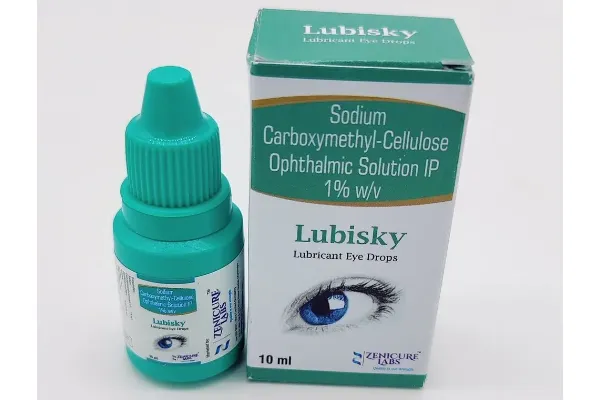
What Happens If You Use Expired Eye Drops?
If you use expired drops, there are two main consequences you have to worry about:
- Loss of potency:The effectiveness of the active ingredients in eye drops may have diminished or been completely lost. So, it’s possible that the eye drops won’t work at all or only partially to treat the specific eye condition. Unfortunately, incomplete care can lengthen (or even exacerbate) some eye issues.
- Contamination: Preservatives found in eye drops typically prevent germs from growing on or inside them. The chance that bacteria will establish a foothold in or around the eye drops, bottle, or dropper tool increases the longer the bottle is left open. Your eyes may experience a number of problems as a result of this bacteria, including redness, itchiness, and eye infection.
Where Can You Find the Expiration Date on Eye Drops?
The expiration date for the majority of eye drops can be found on the bottle’s back or bottom. Simply be cautious: Discard the drops and buy new ones if you can’t find the date or read it.
Using Expired Eye Drops Accidently
It’s simple to inadvertently use expired eye drops. You might be in a hurry, your eyes might be bothering you, or you might have misread the label. Whatever the situation, there’s no reason to get alarmed. Nothing may happen.
Visit your optometrist, though, if you notice any infection-related symptoms like blurred vision, pain, redness, discharge, or sensitivity to light.
Bring your bottle of eye drops with you when you go to the optometrist for a thorough eye exam. Given the wide variety of eye drops available, telling your doctor which kind you use will allow them to create a plan that is specific to your requirements.
What Should I Do With Expired Eye Drops?
Eye drops should always be disposed of properly after they have expired. Eye drops must be kept away from children and anyone who might misuse them because of the numerous chemicals they contain in their formulas.
Eye drops that are not properly disposed of can harm the environment by poisoning nearby animals or contaminating water supplies. To avoid all of these scenarios, squeeze the content completely from the bottle and rinse out the bottle of expired drops before recycling it or placing it in a covered trash container.
Taking Care of Eye Drops
The typical shelf life of unopened eye drops is 1-2 years after the date of manufacture. Eye drops typically contain preservatives to help keep them safe to use after opening the bottle. But 30 days after you first opened the bottle, you should throw away any unopened eye drops. The absence of preservatives or improper storage can cause eye drops to lose their potency more quickly in some circumstances.
Never make use of eye drops that have lost their effectiveness. An infection, inflammation, and irritation can result from using expired eye drops. To reduce the risk of prematurely expiring your eye drops, make sure you:
- Reduce direct sun exposure: leaving your eye drops out in the sun can be harmful. The solution could become overheated and the chemical components could start to break down if there is too much sunlight.
- Don’t leave eye drops in your car: your vehicle can get hot, especially when parked in the sun, and cause the same issues as direct sun exposure. Frosty conditions can harm eye drops even in the colder months.
- Keep your eye drops in a cool, dry place: a medicine cabinet in your bathroom or a bedside table drawer are good places to store your eye drops for ease of use and reduce their risk of damage.
Choosing the Right Type of Eye Drops
There are many different kinds of eye drops available, so it’s crucial to choose the right one for your problem.
For infection/surgery recovery: If you have an eye infection or have recently undergone laser eye surgery, make sure you have a prescription from your eye doctor for the right type of medical eye drops.
For dry eyes: The pharmacy has a variety of over-the-counter eye drops for dry eyes that you can purchase. Since they lubricate your eyes and keep them moist, these are frequently referred to as artificial tears because they function similarly to real tears.
For red eyes: You can purchase specialized eye drops that help to reduce the appearance of redness by constricting the blood vessels on the surface of the eye. Because your eyes can become accustomed to these drops, it is best to use them sparingly. If you notice that your eyes are often red and irritated, it’s a good idea to get them checked out by an eye doctor as there may be an underlying issue that needs to be sorted, rather than just masking the symptoms.
For allergies: Eye drops with an antihistamine can be used to treat the itchy, watery eyes that come with seasonal allergies. This will help you stop rubbing your eyes, which can aggravate the itching.
Never Use Expired Drops—Get a New Bottle Instead
Using old, expired eye drops might seem convenient, but doing so could result in issues that are worse than the ones you were originally buying the drops for. Rather than take the risk, get a fresh bottle of eye drops to treat your ocular concerns, and always book an eye exam to address new or worsening symptoms.
Read about

